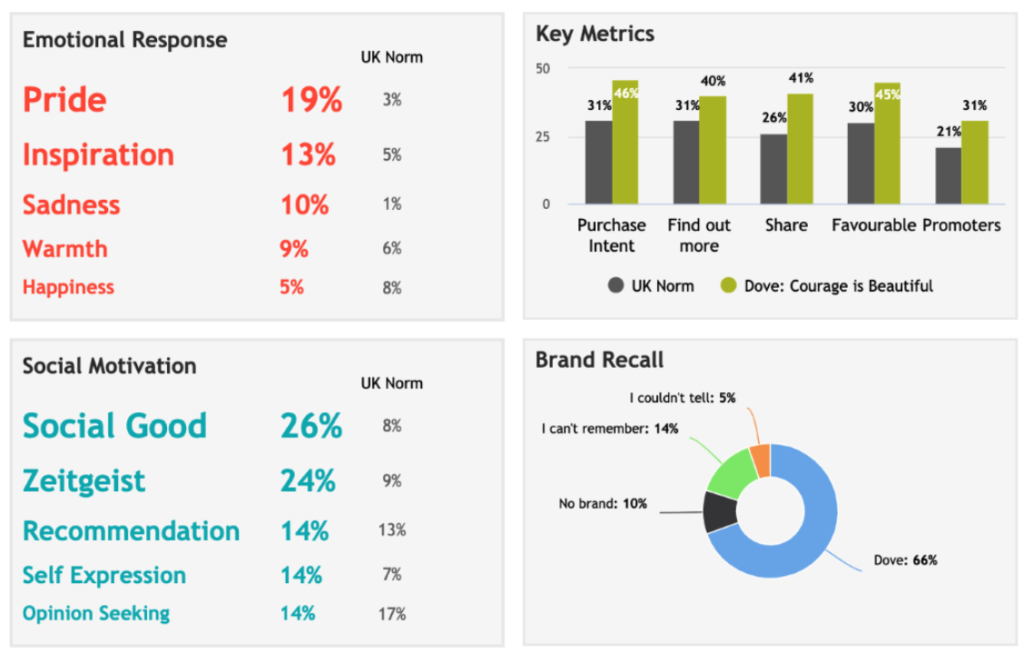Why Companies Need To Pay Attention To Their Brand Purpose
From the spread of COVID-19 and the exposure of racial injustices to the devastating effects of climate change, our world is in a constant state of flux.
But how do brands navigate such an ever-changing world? How do companies deal with sensitive issues? By having a strong brand purpose at their core, says Contagious’s Editor-At-Large, Katrina Dodd, and Unruly’s Global VP Insight and Solutions, Rebecca Waring.
Speaking at yesterday’s ‘Cannes Reconstructed’ event, Katrina emphasised that “having a strong brand purpose helps you navigate difficult times and sensitive issues, allowing your brand to take an active role and become part of the conversation naturally”.
Rebecca added, “having strong brand purpose is key in giving your brand a voice and helping people to feel connected to it on an emotional level, which in turn boosts key business metrics, including brand recall, favourability and intent to purchase. Unruly often tests ads for brands before they go to market to ensure their tone and message aligns with their brand purpose and resonates with their target audience”.
Katrina used the beauty brand Dove as an example of a company that has a great brand purpose at its core.
Their commitment to helping consumers develop a positive relationship with the way they look is reflected throughout the products they sell, the service they provide and their advertising efforts. Their long-running campaign for ‘real beauty’, which launched in 2008, emphasises their brand purpose by working to expose harmful stereotypes of women in the media, and put natural beauty in the limelight.
By centralising this as their brand purpose, these messages have become synonymous with the Dove brand, and as a result they were able to quickly adapt this message when the pandemic struck, finding a natural way to get involved in the conversation.
We ran this ad through our emotional testing and targeting tool, UnrulyEQ and found it performed above average for all key business metrics, scoring particularly high for purchase intent (46% vs. 31% UK norm) and brand favourability (45% vs. 30% UK norm).

This is a great example of how having a strong brand purpose in place can help you quickly adapt your advertising efforts to a difficult situation.
Katrina also spoke about climate change and how global brands should be using their power and creativity to help solve this ongoing issue.
She made the point that many brands find it difficult to naturally fit into the climate change conversation. However, if your brand purpose reflects your intentions to make the world a better place, you should be able to find ways your brand can have a positive impact.
She looked at an example from a French 3D printing company Dagoma. It’s not a brand you would immediately associate with the climate change movement, but by ensuring sustainability is kept at the forefront of everything they do, they came up with an amazing campaign around printing missing toy parts and sharing the instructions online to help parents fix their toys rather than buying new ones.
She also looked at apparel brand Adolpho Dominguez, which has built its commitment to the environment into the very core of its brand and uses the motto ‘we are the children of the earth, not their owners’.
This means being part of the climate change conversation comes very natural to them and they recently launched an extremely successful campaign based around investing in good clothes and reusing old ones instead of fast fashion, which is having huge implications on the environment.
Purpose is no longer something brands can choose to opt in to or not. Consumers, now more than ever, expect brands to act responsibly and have a voice when it comes to important issues.
We found this to be true in a study we recently carried out on advertising during COVID-19. It showed that most people still wanted to hear from advertisers (only 2% of US consumers thought advertising should be paused). Respondents also said they wanted to hear how brands are supporting staff and consumers (22%) or wanted informative messages about COVID-19 (21%).
It’s not as easy as you think, though. Companies need to ensure their brand purpose is genuine, otherwise consumers will call them out. We’ve seen this happen recently though the Black Lives Matter movement, with many brands being called out for jumping on the bandwagon because their actions don’t align with the values of the movement.
This has made many brands realise the importance of having a strong brand purpose at the centre of everything they do. Not having this can have severe effects on key business metrics, especially brand reputation.
Creating a brand purpose is a challenging task, but as we’ve seen, getting it right can have a hugely positive outcome for your brand.
If you need to rethink your brand purpose, we’ll leave you with some questions from Katrina to think about:
- What are the internal issues we need to address to feel good about our company and culture?
- Do we have a clear organising principle? Seriously, OK, what is it?
- What could we do to become better community platers or potential collaborators?
- Where can OUR expertise and resources make the greatest impact?
